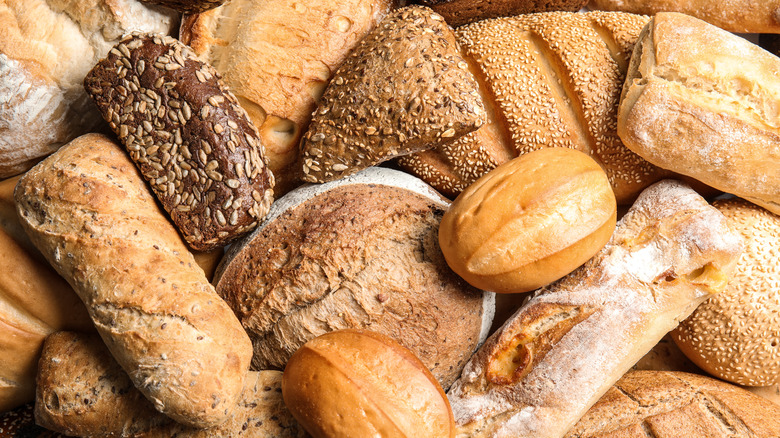Enriched Grains Versus Refined Grains: What's The Difference?
Are you often bombarded by the numerous choices in food aisles these days? So are we. Organic. Enriched. Refined. Specifically, what is the difference between enriched grains versus refined ones?
It all starts with the whole grain, which is unrefined and full of healthy fiber, phytochemicals, vitamins, according to WebMD. Whole grains keep you feeling fuller longer, too. You'll know whole grains because they look as if harvested directly on the farm: brown or dark-colored. Some typical whole grains include barley, buckwheat, and oats.
When foods like white rice and white pasta are processed or refined, they're stripped of either one or more of their three key parts: bran, germ, or endosperm. Oldways Whole Grains Council explains that the refining process removes approximately 25% of the protein and over half of the grain's nutrient content. Once items like white rice, for example, are processed, vitamins and minerals must be added or "enriched" again.
Whole grains are your best healthy option
Browsing through store sections and a food label saying "enriched" may make us think, "This may be healthier, right?" Let's think again. Elmhurst, a plant-based milk distributor put it perfectly, "Fortification and enrichment upset nature's packaging." Enriched foods may have high amounts of vitamins or minerals, possibly leading to kidney stones or increased risk of birth defects or liver damage. While it sounds appealing, enriched grains may also mean adding back fewer than half a dozen of missing nutrients, according to Oldways Whole Grains Council. Regardless of having too much or too little nutrient enrichment, choosing whole grains is the healthier option.
At the store, if you want the best fiber for your family, check nutrition labels first. Look for bulgur, quinoa, sprouted grains, or ancient grains. Whole grain flours, breads, and pasta are always a nutritional win. Experts at WebMD agree that there are multiple benefits to eating whole grains: weight control, balanced blood sugar levels, cholesterol cuts, and reduced risk of heart disease. All by choosing the whole wheat pasta? Go for it!
The bottom line: Refined grains have had nutrients removed through the milling process. Enriched grains have been refined, yet nutrients were readded to them. Your best options will be to eat whole grains if your constituency allows it. Consult a nutritionist to get the right amounts of healthy grains in your diet.


